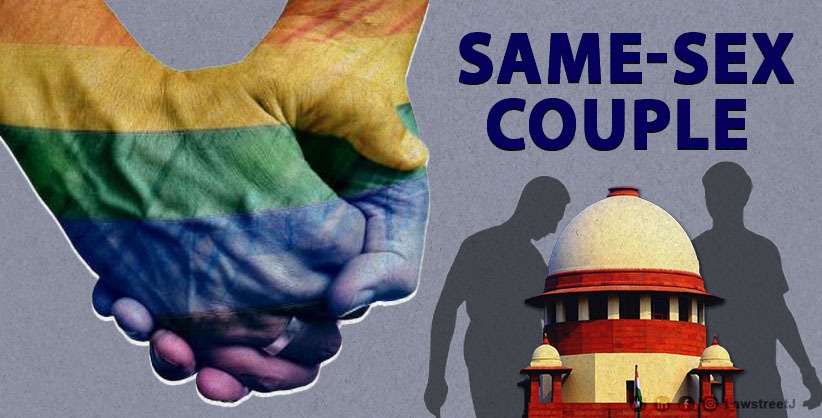NEW DELHI: The Supreme Court on Thursday asked the Centre to find out if it can take some administrative steps to grant same-sex couples basic social benefits, like joint bank accounts or nominating a partner in insurance policies, even in absence of legal recognition of their marriage.
The court noted the Centre's "powerful" argument that legal sanction for same-sex marriage is under Parliaments domain even as Solicitor General Tushar Mehta, appearing for the Union government, contended if the plea for legal sanctity to such couples is accepted, someone may come to court against incest on plea that the State had no business to intervene if two adults decided to have a sexual relationship in prohibited degrees.
Taking up a batch of petitions by same sex couples, a Constitution bench led by Chief Justice of India D Y Chandrachud said that when the court says recognition, it need not be recognition as marriage, it may mean recognition which entitles the couple to certain benefits, and the association of two people need not be equated to marriage.
The bench told Mehta that once you say that right to cohabit is a fundamental right, then it is the obligation of the state that all social impact of the cohabitation has a legal recognition, and court is not going into marriage at all.
"Once you accept the fact that same sex couples have a right to cohabit, there is a corresponding duty on the State to at least recognise that cohabitation...all the social incidences of that cohabitation must find recognition in the law...As a welfare state, as a democratic state, these are aspirations of the people that there has to be some recognition," the bench told Mehta.
The bench, also comprising Justices Sanjay Kishan Kaul, S Ravindra Bhat, Hima Kohli and P S Narasimha, said the court wants some element of a broad sense of coalition and the court is also conscious about the fact that there is so much that representative democracy should also achieve in the country.
"There will be social requirements such as banking, insurance, admissions etc where the Centre will have to do something," the bench said.
Mehta said the government may consider tackling some of the issues, same sex couples are facing without granting the legal recognition.
The court told Centre to come back on May 3 with its response on social benefits that same sex couples could be granted even without legal recognition of their marital status.
"We take your point that if we enter this arena..you have made a very powerful argument and this is for the Parliament, this will be an arena of the legislature.. So, now what, the bench asked Mehta.
The bench also sought to know how a sense of security and social welfare is made and also how it can be ensured that such relations are not ostracised in the society.
In his arguments earlier, Mehta asked the court to visualise a situation in which five-years down the line, a person may say that he is attracted to those persons who are mentioned in the degree of prohibited relationship.
Mehta said such people may claim right of autonomy, right of choice and right of doing something in private domains..may be far-fetched".
"That will be far-fetched.it may be very far-fetched for anybody to even argue before us then that orientation is so absolute that I can therefore commit an act of incest.no court will ever (entertain this), the bench said.







